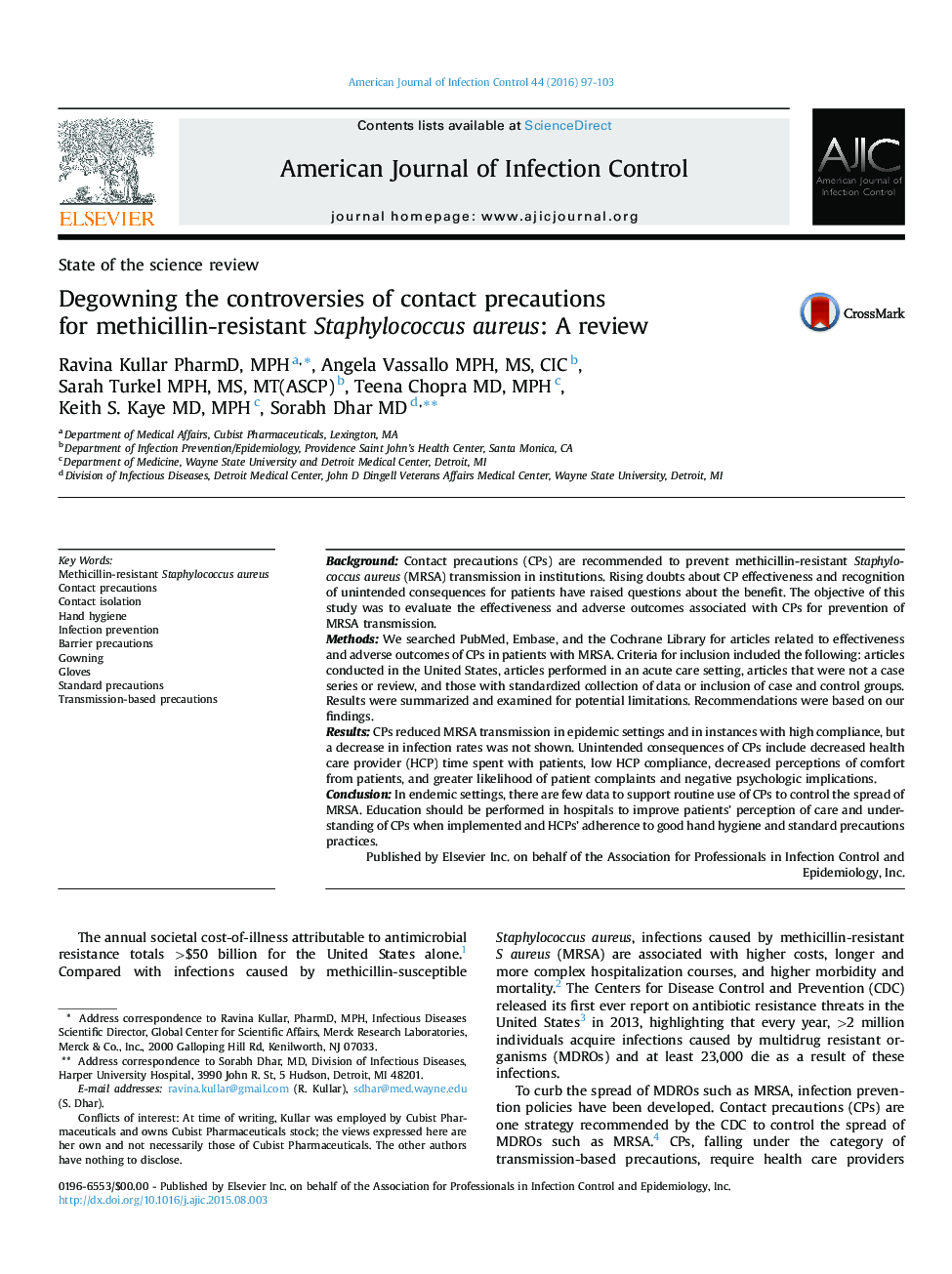| کد مقاله | کد نشریه | سال انتشار | مقاله انگلیسی | نسخه تمام متن |
|---|---|---|---|---|
| 2638254 | 1563464 | 2016 | 7 صفحه PDF | دانلود رایگان |
• We reviewed the literature on the effectiveness and adverse effects of contact precautions to decrease methicillin-resistant Staphylococcus aureus.
• Contact precautions did not reduce transmission of methicillin-resistant Staphylococcus aureus in nonepidemic settings.
• Contact precautions were associated with both decreased health care providers' time spent with patients and low compliance.
• Patients on contact precautions had more negative psychologic implications.
BackgroundContact precautions (CPs) are recommended to prevent methicillin-resistant Staphylococcus aureus (MRSA) transmission in institutions. Rising doubts about CP effectiveness and recognition of unintended consequences for patients have raised questions about the benefit. The objective of this study was to evaluate the effectiveness and adverse outcomes associated with CPs for prevention of MRSA transmission.MethodsWe searched PubMed, Embase, and the Cochrane Library for articles related to effectiveness and adverse outcomes of CPs in patients with MRSA. Criteria for inclusion included the following: articles conducted in the United States, articles performed in an acute care setting, articles that were not a case series or review, and those with standardized collection of data or inclusion of case and control groups. Results were summarized and examined for potential limitations. Recommendations were based on our findings.ResultsCPs reduced MRSA transmission in epidemic settings and in instances with high compliance, but a decrease in infection rates was not shown. Unintended consequences of CPs include decreased health care provider (HCP) time spent with patients, low HCP compliance, decreased perceptions of comfort from patients, and greater likelihood of patient complaints and negative psychologic implications.ConclusionIn endemic settings, there are few data to support routine use of CPs to control the spread of MRSA. Education should be performed in hospitals to improve patients' perception of care and understanding of CPs when implemented and HCPs' adherence to good hand hygiene and standard precautions practices.
Journal: American Journal of Infection Control - Volume 44, Issue 1, 1 January 2016, Pages 97–103
